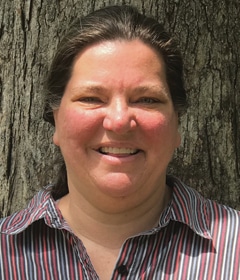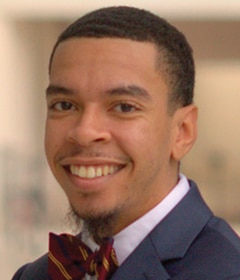Shifting Responsibilities: A Reflection on the Transition of Student Government Association Presidents to Advisors
Leading organizations and advising organizations are different experiences. Leaders set and provide direction toward achieving goals; advisors help organizations achieve goals by providing guidance around policies and process. But what does the advisor identity look and feel like for those who were once high-profile student leaders like student government presidents? Their leadership roles as undergraduates might have been the impetus for considering a career in student affairs. For many, the first step on that path is to pursue a master’s degree, which often includes assistantships with responsibility for advising student organizations. During this time of transition, individuals are taking on new roles: graduate student with intense academic responsibilities, graduate assistant with work responsibilities, and potentially advisor to multiple organizations. This change may be especially jolting for recent graduates who were involved in student government or other high-profile organizations.
The study shows former student government presidents felt they had a voice, had opportunities to share perspectives and influence campus issues, and potentially had resources and access to campus administrators that most student organization advisors do not have. They were visible and wielded influence with students, key partners on campus, and in the larger community. These leaders had to navigate the same changes from leader to advisor as others, but perhaps with a more intensified loss of identity.
This article is based on reflections and exchanges between three former student government presidents from three different institutions: Nick Lang (University of North Alabama, 2015–2016), Travis Smith (Alabama State University, 2011-2012), and Jeffery Hahn (Stetson University, 2016-2017). Three themes emerged from the individuals’ discussion of their experiences: Loss of identity, navigating the shift and creating a new perspective, and lessons learned. Former student leaders of all kinds who may be moving into advising roles—as well as their supervisors—can benefit from understanding the transitions taking place.
LOSS OF IDENTITY
Moving from student leader to graduate student requires sacrifice. According to the National Campus Leadership Council, the average size of a student government budget is $591,124.80, 79% of SGA presidents said they would run for office again, and 55% reported feeling very or extremely influential in effecting change on their campus. These statistics tend to indicate a real and perceived status on campus, at least until graduation and departure. Then, the former student leaders may feel a loss of access to decision-makers and identity as change-makers, leading to a crisis of confidence in navigating new support roles. When individuals choose careers in student affairs, they may now be the advisor, seen as the person with administrative answers but no longer as the person responsible for communicating an organizational vision.
The shift from well-known student leader to less-connected graduate student may be difficult at first. At one time a student government president might may have been able to walk anywhere on campus and know other student and professional leaders by way of their leadership experiences. Accompanying that can be an increased level of confidence that can help define who an individual is.
Beyond knowing people on a personal level, strategic networking with stakeholders presents a transition. Stakeholders once helped achieve organizational goals and meet student needs, but now they must navigate the transition from having the ability to reach out to a president or trustee to building new relationships through work as an advisor. Leaders may have had regular meetings with stakeholders and the opportunity to bring concerns straight to them, but the role of graduate student advisor differs. Advisors do not have the same connections with stakeholders who facilitate accomplishing goals and work responsibilities.
The level of networking that student leaders experienced helped them achieve goals and afforded opportunities for personal growth. Peers saw them as having answers and solutions with the ability to be change agents. As graduate students and organization advisors, the landscape for growth opportunities may look different, sometimes even limited, which underscores the importance of viewing the role of advisor through the lenses of both past and present roles.
This need not be a negative transition, as tremendous learning and growth can result from the leader-to-advisor transition. The change in identity can be both challenging and developmental because shifting from leader to advisor enables individuals to sculpt new skills, create new relationships, and prepare for future transitions as new professional identities take shape.
NAVIGATING THE SHIFT & CREATING A NEW PERSPECTIVE
One primary challenge of this transition can occur as an advisor strives to find the balance between stepping in and stepping back. This can be more difficult for advisors who have direct experience in positions they are now advising. That familiarity might cause advisors to put themselves back in the shoes of their former selves, reliving experiences and roles they once had as leaders. Still, it’s those experiences that can help inform decisions on perspective and lend assistance to new leaders. Without trying to recreate past experiences, graduate students and advisors can draw upon past successes, and failures, because that knowledge may well be utilized to the betterment of both student and organization.
CONNECTIONS AND RESPONSIBILITY
Student government presidents who become advisors face the test of establishing credibility in a new environment where work ethic, commitment to job and values, and previous accomplishments may generally be unknown to others. This can lead individuals to overcommit to organizations in order to reestablish that they are dedicated individuals with the ability to achieve goals. In these new roles, doubts about the needed skills and knowledge may emerge as they reflect on a past when they once knew how to find the information they needed. As advisors, as is the case in taking on any new role, not knowing answers or the availability of resources might instill insecurity and a questioning of sense of self. As a result, former leaders must learn quickly that they are no longer responsible for accomplishing all of the organizational tasks they once had, but rather for transferring knowledge so that others may accomplish those goals. The new role is to advise, rather than execute.
RECOGNITION
Another important consideration for student government presidents who now serve as advisors is the role of organizational recognition. As student leaders, many received recognition that served as points of pride and reinforced that what they were doing was effective and appreciated. It can be a positive experience to accomplish goals and have people recognize organizational work. As advisors, supporting organizations as they generate ideas and watching students make ideas reality may seem less rewarding. Selflessness is the cornerstone of effective advising; however, while the recognition organizations receive focuses on students, successful advising can be a positive emotional experience. Remember that success as an advisor is going to be measured by the success of students, what they’ve learned and how they’ve grown, and not by any student leader metric from the past.
EMPLOYEE IDENTITY EMERGENCE
Another part of transitioning to organizational advisor is shifting focus from student change agent to an employee working to create change in new ways. Former leaders eventually need to realize that in a new graduate student role they are university employees and students, not just students, learning to navigate advising students without forgetting they are employees. As student leaders, they had the ability to push for things that they wanted, but as employees, more attention is paid to organizational structures and university politics. At some point, the successful advisor will stop thinking like a student and start thinking like a professional, without getting caught up in day-to-day operations and the ins and outs of organizational functions and activity.
ADVISOR IDENTITY DEVELOPMENT
Changing the frame of reference from leader to advisor can be like moving into a parenting role. Focusing on guiding and assisting leaders and organizations to make good decisions is essential, and the long-term vision of the organization and students served is important. One step to take is to ask leaders and organizations what they want their legacy to be.
Reflecting on past successes, past challenges, and failures is a powerful way to develop advising identity and style. When identifying shortcomings, student leaders might be inclined to place blame. An advisor moves forward with focus on the team, supporting one another through challenges and failure. Support as a means of learning and growth, as opposed to denigration, is important to offer, and an advisor is responsible for maintaining that type of organizational culture consistently. Advisors can no longer make decisions in the ways they would have as student leaders, but they can promote self-governance while maintaining departmental expectations.
FINAL THOUGHTS
The three authors of this piece who were student government presidents agree that previously holding leadership positions in the organizations they are now advising can be helpful, but not necessary. It may bring with it its own set of challenges. Being intentional and reflective can help in transitioning and in developing an advising style. Ultimately, it is important to set students up for success and growth. With that at the forefront of thinking, planning, and acting, students and organizations will have an excellent chance to benefit from the experiences of former leaders.
LESSONS LEARNED & WORDS OF ADVICE
The authors who served as student government presidents offer lessons learned from their transition to advisor role. Drawn from specific leadership experiences, the hope is these insights cut across affiliation and experience and will inform the practices of other former student leaders now advising student organizations.
FEAR NOT FAILURE
Some advisors micromanage organizations for fear of failure, but students need the opportunity to try new things and experience the results, so let students run with ideas. When they do propose ideas and options, keep them grounded and help them identify pros and cons. Let students fail and succeed on their own, while holding them accountable in a genuine and loving way. Then approach failure through evaluating why a decision was made and what the effects or outcomes of the decision were. Finally, anticipate failure yourself, and then seek to learn as a result.
KNOWLEDGE SUPPORTS SUCCESS
Know, value, and respect the administrative staff as the people who manage paperwork or handle departmental communications and also know big picture details related to policies, process, protocols, and politics. Know policies relevant to the department and the organization, and then keep the organizational mission close and as part of the conversation. This will help leaders and members define purpose, mission, and goals. Then try to always use “we” because a seamless connection between advising, leadership, and the larger organization will facilitate effectiveness.
IMPORTANCE OF AUTONOMY
Do not micromanage students. To truly grow and develop during their time in organizations, students must try new things and experience doing the work on their own. Advisors who are overly involved deprive students of the opportunity to learn collaboration toward accomplishing tasks and goals, and remember the people each advisor encounters will not have had the same experiences.
VISIONING
When making plans or decisions, ask organizational leaders these two key questions: “Who do you serve?” and “What are your goals?” Then think ahead about emerging needs and concerns, including what may happen after current members graduate. Helping leaders and organizations focus on growth and development, both within the organization and as individuals, can provide multiple benefits.
BECOMING THE BEST
Be the advisor others want to emulate. Lead by example, show members and leaders how to exemplify the values of the organization, and remember others are watching. Whatever style you choose needs to be your own because comfort and authenticity can serve as aids to success. Then, finally, understand that selflessness does not mean you should not take care of yourself. Students are part of your job, but your life is separate, so take care of yourself in order to take care of your students.




